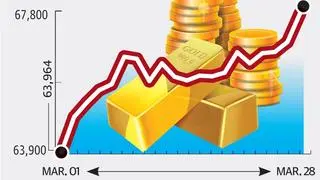Trading European options exposes individuals to a behavioural bias called house money effect. This week, we define this bias and show how to moderate its effect.
Capitals Vs Gains
Suppose you started with a trading capital of one lakh six months ago and your capital has since grown to 1.5 lakh. You have three choices. One, you can continue to trade with the initial capital of one lakh and move your gains of 50,000 into a bank deposit. Two, you trade with your gains of 50,000 and move your initial capital to a deposit. Three, you can trade with the higher capital of 1.5 lakh.
House money effect refers to a bias that gamblers suffer from. Gamblers typically take riskier bets with their gains because they consider the money coming from the “house” (the casino). In the market (analogous to the “house”), this effect refers to traders taking greater risk using proceeds from the realized gains.
In options, such behaviour could involve buying several contracts of, say, deep out-of-the-money (OTM) options or shorting at-the-money (ATM) options. The long OTM options have higher chances of expiring worthless and the short ATM options have higher chances of gathering losses. Traders in both the spot and the derivatives markets are likely to suffer from house money effect. The effect is greater when you trade European options. Why? The objective of a trader is to buy and sell options, not exercise them. But a trader can at least exercise an American option if she is unable to sell it. This choice is unavailable for European options, as it can be exercised only at expiry. So, liquidity is an important factor when selling European options.
Empirically, ATM and the immediate two OTM strikes tend to attract better liquidity than other strikes. Why? In-the-money (ITM) options have higher absolute premium which prompts traders to avoid them. In contrast, deep OTM options, because of their lower delta, could generate lower gains even if the underlying moves in the required direction.
So, a trader ought to sell her profitable option position before its liquidity declines. Liquidity could decline when the option becomes ITM and is at least one tradable strike (100 strikes for Nifty options) away from the ATM. That is, the Nifty index is more than 100 points from the ITM strike you are holding; you can at least capture the intrinsic value if you exercise an illiquid American option.
The upshot? You are likely to close your European option positions to take profits more often than if you were trading American options. Now, more frequent the profit-taking, greater the likelihood that you will suffer from house money effect. To moderate this bias, you should have a pre-defined rule to handle your realized gains.
If you have recently started trading in options, you should use the initial capital and take out the gains. This way, you refrain from taking larger bets and exposing yourself to larger losses till you are comfortable scaling-up your capital. If you are an experienced trader, you could consider trading the total capital including realized gains.
Optional reading
You can use options to moderate House Money effect on your stock positions. How? For instance, you may have bought a stock at 700 and sold it at 800, collecting a profit of, say, 40,000. You can use a portion of this gains to buy, say, 800 call or an immediate OTM strike on the stock if you want to bet that the uptrend in the stock would continue. This way, you yield to temptation and take some risky bets, yet protect your initial capital and some realized gains. This argument can be extended to futures- portion of gains from futures can be used to buy options. This is especially important when you are on winning streak, making consecutive gains on your trades!
(The author offers training programme for individuals to manage their personal investments)










Comments
Comments have to be in English, and in full sentences. They cannot be abusive or personal. Please abide by our community guidelines for posting your comments.
We have migrated to a new commenting platform. If you are already a registered user of TheHindu Businessline and logged in, you may continue to engage with our articles. If you do not have an account please register and login to post comments. Users can access their older comments by logging into their accounts on Vuukle.